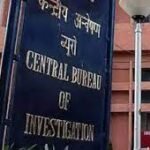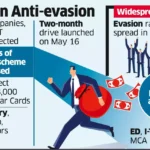Delhi’s Chief Minister, Arvind Kejriwal, has announced that the city’s water crisis will be resolved within the next two to three years. The government has taken proactive measures to enhance the water supply capacity by up to 300 million gallons a day (MGD), in order to meet the growing demands of the capital’s residents. Currently, Delhi requires approximately 1,300 MGD of water for drinking and daily needs, but the Delhi Jal Board (DJB) can only supply around 1,000 MGD, leading to water shortages in various areas.
Under Kejriwal’s leadership, the DJB’s water supply capacity has already increased from 850 MGD in 2015 to the current level of 1,000 MGD. However, recognizing the pressing need for more water, the Chief Minister has set an ambitious target to further enhance the capacity to a range of 1,200-1,300 MGD within the next two to three years. This substantial increase in water supply will play a crucial role in ensuring that Delhi’s residents have access to adequate and reliable water resources.
The government’s initiatives to address the water crisis include the implementation of various projects aimed at augmenting water supply. These projects involve the construction of new water treatment plants, installation of additional pipelines, and the rejuvenation of existing water sources. By expanding the infrastructure and optimizing water management practices, the government aims to bridge the gap between demand and supply, thereby alleviating the water scarcity issues faced by millions of residents.
Furthermore, the government is actively exploring innovative solutions to maximize water resources. One such initiative is the promotion of rainwater harvesting techniques, which encourage residents to capture and store rainwater for future use. By popularizing these sustainable practices, the government hopes to reduce reliance on traditional water sources and promote the conservation of this precious resource.
Additionally, efforts are being made to improve water distribution systems and minimize wastage through the implementation of advanced technology and infrastructure upgrades. The integration of smart meters and monitoring systems will enable efficient tracking of water usage, identification of leakages, and timely repairs. These measures will not only help conserve water but also streamline the water supply network, ensuring equitable distribution across the city.
Kejriwal emphasized the importance of public participation in achieving the government’s goals. He urged residents to adopt responsible water consumption habits and actively contribute to the conservation efforts. The government plans to launch public awareness campaigns and educational programs to promote water-saving practices, encouraging citizens to play an active role in addressing the water crisis.
Delhi’s water crisis is being tackled head-on by the government, under the leadership of Chief Minister Arvind Kejriwal. With an aim to enhance the water supply capacity by 300 MGD within the next two to three years, the government is implementing a range of initiatives, including infrastructure development, technology integration, and public engagement. By taking these proactive measures, the government is striving to ensure that the water needs of Delhi’s residents are adequately met, bringing relief to areas grappling with water shortages and creating a sustainable water future for the capital.




